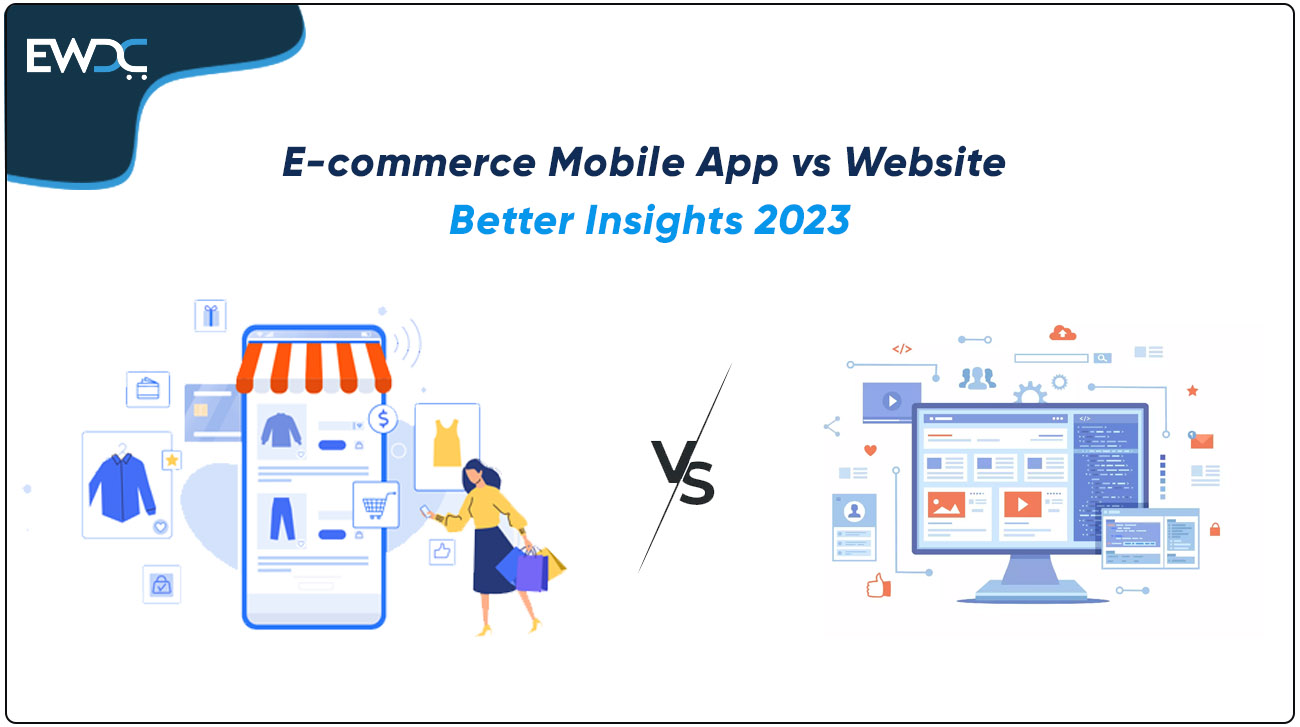
E-commerce is a booming industry that has been growing rapidly in the past few years, especially after the Covid-19 pandemic. More and more consumers are shopping online, using their smartphones, tablets, laptops, and desktops. But how do e-commerce businesses reach their potential customers and provide them with the best shopping experience? Should they invest in a mobile app a website, or both?

A mobile app is a software application that runs on a mobile device, such as a smartphone or a tablet. Users need to download and install the app from an app store, such as Google Play or Apple App Store before they can use it. A mobile app can access the device’s features, such as the camera, GPS, microphone, etc., and can work offline or online, depending on the app’s functionality.
A mobile website is a web page that can be accessed through a web browser on any device, including mobile devices. Users do not need to download or install anything to use a mobile website. They just need to type the website’s URL or click on a link. A mobile website can also access some of the device’s features, such as geolocation, but it requires an internet connection to work.

There is no definitive answer to this question, as it depends on various factors, such as the business goals, budget, target audience, and nature of the business. However, we can compare the pros and cons of each option to help e-commerce businesses make an informed decision.


As we have seen, both mobile apps and mobile websites have their advantages and disadvantages for e-commerce businesses. The best option depends on the specific needs and goals of each business, as well as the expectations and preferences of their target customers. Therefore, e-commerce businesses should conduct thorough market research and user analysis before deciding which option to choose.
However, there is also a third option that many e-commerce businesses use: having both a mobile app and a mobile website. This can be a smart strategy to maximize the benefits of both options and cater to different segments of customers. For example, a mobile website can be used to attract new customers and increase brand awareness, while a mobile app can be used to retain loyal customers and increase customer lifetime value. This way, e-commerce businesses can offer the best of both worlds and optimize their online presence and performance.
E-commerce is a competitive and dynamic industry that requires e-commerce businesses to adapt to the changing needs and preferences of their customers. Mobile apps and mobile websites are two powerful tools that can help e-commerce businesses reach and engage their customers and provide them with the best shopping experience. However, each option has its pros and cons, and the best option depends on the specific goals and needs of each business. Therefore, e-commerce businesses should carefully evaluate their options and choose the one that suits them best or consider having both a mobile app and a mobile website to leverage the strengths of both.
If you are looking for a reliable and professional e-commerce development partner that can help you create a mobile app a mobile website, or both, for your online store, you can contact EWDC, a leading e-commerce website development company in Chennai. EWDC offers customized and cost-effective e-commerce solutions that match your business requirements and budget. Whether you need a Shopify web development service, a custom PrestaShop development company, a Wix development service, or any other e-commerce platform, EWDC can help you achieve your e-commerce goals and grow your online presence and performance. To know more about EWDC and its services, you can visit their website or contact them today.
For most new e-commerce businesses, a website is a more budget-friendly and accessible option. It reaches a wider audience, is easier to SEO, and requires less upfront investment. You can always develop an app later as your customer base grows and you have a better understanding of their needs.
Yes, a well-designed app can offer a superior user experience with faster loading times, personalized features, and exclusive content. This can be ideal for high-value products where you want to build brand loyalty and encourage repeat purchases.
Both apps and websites can offer secure mobile payment options, such as Apple Pay, Google Pay, and integrated payment gateways. Choose a reputable provider and ensure you implement robust security measures to protect your customers’ data.